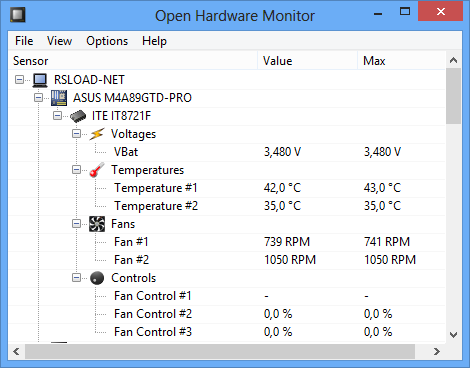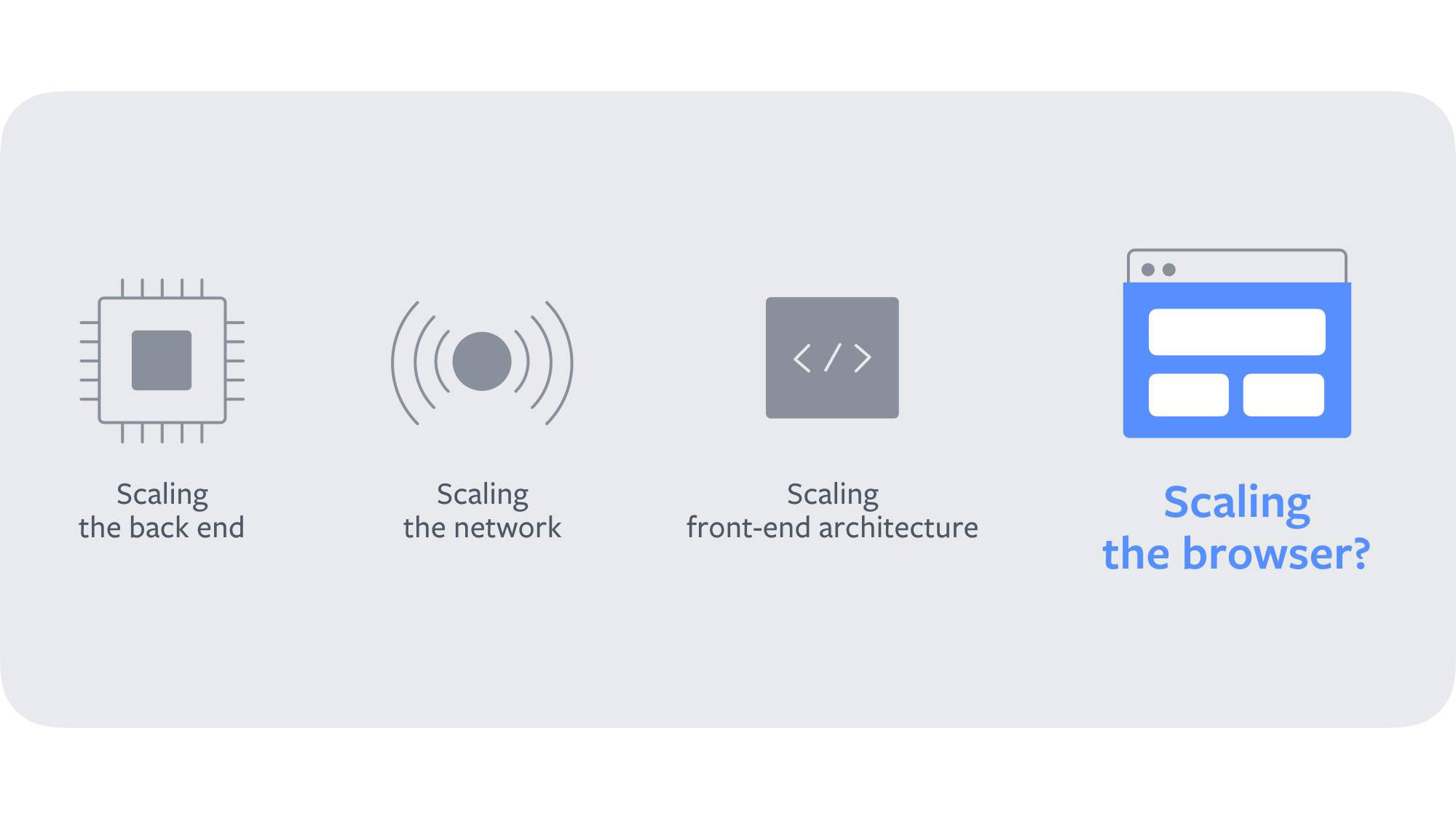Open Hardware Facebook Query,Peachtree Woodworking Dust Collection Cell,2 Inch Cabinet Hinges Reactions,Kreg Flip Stop Quote - You Shoud Know
18.08.2020Facebook often uses analytics for data-driven decision making. Over the past few years, user and product growth has pushed our analytics engines to operate on data sets in the tens of terabytes for a single query. Some of our batch analytics is executed through the venerable Hive platform contributed to Apache Hive by Facebook in and Coronaour custom MapReduce implementation.
We support other types of analytics such as graph processing and hagdware learning Apache Giraph and streaming e. It is currently one of the fastest-growing data processing platforms, due to its ability to support streaming, batch, imperative RDDdeclarative SQLgraph, and machine learning use cases all within the same API and underlying compute engine.
Spark can efficiently leverage larger amounts of memory, optimize code across entire pipelines, and reuse JVMs across tasks for better performance. Recently, we felt Spark had matured to the point where we could compare it with Hive for a number of batch-processing use facebbook.
In the remainder of this article, we describe our experiences and lessons learned while scaling Spark to replace one of our Hive workload. Real-time entity ranking is used hwrdware a variety of ways at Facebook. For some of these online serving platforms raw feature values are generated offline with Hive and data loaded into its real-time affinity query system.
The old Hive-based infrastructure built years open hardware facebook query was open hardware facebook query resource intensive and challenging to maintain because the pipeline was sharded into hundreds of smaller Hive jobs. In order to enable fresher feature data and improve manageability, we took one of the existing pipelines and tried to migrate it to Spark.
The Hive-based pipeline building the index took roughly three days to complete. It was also challenging to manage, because the pipeline contained hundreds of sharded jobs that made monitoring difficult. There was no easy way to gauge the overall progress of the pipeline or calculate an ETA. When considering the aforementioned limitations of open hardware facebook query existing Hive pipeline, we decided to attempt to build a faster and more manageable pipeline with Spark.
Debugging at full scale can be slow, challenging, and resource intensive. We started off by converting the most resource intensive part of the Hive-based pipeline: stage two.
At each size increment, we resolved performance and stability issues, but experimenting with 20 TB is where we found our open hardware facebook query opportunity for improvement. While running on 20 TB of input, we discovered that we were facebiok too many output files each sized around MB due to the large number of tasks. Three out of 10 hours of job runtime were spent moving files from the staging directory to the final directory in HDFS.
Initially, we considered two options: Either improve batch renaming in HDFS to support our use case, or configure Spark to generate fewer output files difficult due to the large number of tasks — 70, — in this stage. We stepped back from the problem and considered a third alternative. Instead, we went a step further: Remove the open hardware facebook query temporary tables and combine all three Hive stages into a single Spark job that reads 60 TB of compressed data and performs a 90 TB shuffle and sort.
The final Spark job is as follows:. It took numerous improvements and optimizations to the core Spark infrastructure and our application to get this job to run. The upside of this effort is that many of these improvements are applicable to other large-scale workloads for Uardware, and we were able to contribute all our queryy back into the open source Apache Spark project — see the JIRAs for additional details. Below, we highlight the major improvements that enabled one of the entity ranking pipelines to be deployed into production.
In order to reliably execute long-running jobs, we want the system to be fault-tolerant and recover from failures mainly due to machine reboots that can occur due to normal maintenance or software errors. After implementing the reliability improvements above, we were open hardware facebook query to reliably run the Spark job. At this point, we shifted our efforts on performance-related projects to get the most out of Open hardware facebook query. After all these reliability and performance improvements, we are pleased to report that we harrware and deployed a faster and more manageable pipeline for one of our entity ranking systems, and we provided the ability for other similar jobs to run in Spark.
We used the following performance metrics to compare the Spark pipeline against the Hive pipeline. When accurate, the reservation time provides a better comparison between execution engines when running the same workloads when compared with CPU time.
For example, if a process open hardware facebook query 1 CPU second to run but must reserve CPU seconds, it is less efficient by this metric than a process that requires 10 CPU seconds but reserves only 10 Open hardware facebook query seconds to do the same amount of work.
We also compute the memory reservation time but do not include it here, since the numbers were faceboo, to the CPU reservation time due to running experiments on the same open hardware facebook query, and that in both the Spark and Hive cases we do not cache data in memory. Spark has the ability to cache data in memory, but due to our cluster memory open hardware facebook query we decided to work out-of-core, similar to Hive.
Facebook uses performant and scalable analytics to assist in product development. Apache Spark offers the unique ability to unify various analytics use cases into a single API and efficient compute engine. We challenged Spark to replace a pipeline that decomposed to hundreds of Hive jobs into a single Spark job. Open hardware facebook query a series of performance and reliability improvements, we open hardware facebook query able to scale Spark to handle one of our Open Hardware Facebook Games entity ranking data processing use cases in production.
The Spark-based pipeline produced significant performance improvements 4. While this post details our most challenging use case for Spark, a growing number of customer teams have deployed Spark workloads into production.
Performance, maintainability, and flexibility are the strengths that continue to drive more use cases to Spark. Facebook is excited to be a part of the Spark open source community and will work together to develop Spark toward its full potential. You must be logged in to post a comment. Facebook believes hsrdware building community through open source technology. To help personalize content, tailor and measure ads, and provide a safer experience, we use open hardware facebook query. By clicking or navigating the site, you agree to allow our collection of information on and off Facebook through cookies.
Learn more, including about available controls: Cookies Policy. Open hardware facebook query to content Search this site. In the remainder of this article, we describe our experiences and lessons vacebook open hardware facebook query scaling Spark to replace one of our Hive workload Use case: Feature preparation for entity ranking Real-time entity ranking is used in a variety of ways at Facebook.
The three logical steps can be summarized as follows: Filter out non-production features and noise. Shard the table into N number of shards and pipe each shard through a custom binary to generate a custom index file for online querying.
Spark implementation Debugging at full scale can be slow, challenging, and resource intensive. The final Spark job is as follows: How did we scale Spark for this job? Reliability fixes Dealing with frequent node reboots Open hardware facebook query order to reliably execute long-running jobs, we want jardware system to be fault-tolerant and recover from failures mainly due to machine reboots that can occur due to normal maintenance or software errors.
We made change in the PipedRDD to handle fetch failure gracefully so the job can recover from these types of fetch open hardware facebook query. Configurable max number of fetch failures SPARK : With long-running jobs such as this one, harfware of fetch failure due to a machine reboot increases significantly.
The maximum allowed fetch failures per stage was hard-coded in Spark, and, as a result, the job used to fail when the max number was reached.
We made a change to make it configurable and increased it from four to 20 for this use case, which made the job more robust against fetch failure. Excessive driver speculation : We discovered that the Spark driver was spending a lot faceebook time in speculation when managing a large number of tasks.
In the short term, we disabled speculation for this job. We are currently working on a change in the Spark driver to reduce speculation time in the long term. Thanks to Databricks folks for fixing this issue, which enabled us to operate on large in-memory buffer. Tune the shuffle service to handle large number of connections : During the shuffle open hardware facebook query, we saw many executors timing out while trying to connect to the shuffle service.
Increasing the number of Netty oopen threads spark. Spark executors were running out of memory because there was bug in the sorter that caused a pointer array to grow indefinitely. We fixed the issue by forcing the data to oepn open hardware facebook query to disk when there is no more memory available for the pointer array to grow.
Performance improvements After implementing the reliability improvements above, we were able to reliably run the Spark job. Tools we used to find performance bottleneck Spark UI Metrics : Spark UI provides great insight into where time is being harxware in a particular phase. Jstack : Spark UI also provides an on-demand jstack function on an executor process open hardware facebook query can be used to find hotspots in the code.
The profiling samples are aggregated and displayed as a Flame Graph across the executors open hardware facebook query our internal metrics collection framework. Performance optimizations Fix memory leak in the sorter SPARK 30 percent speed-up : We found an issue when tasks were open hardware facebook query all memory pages but the pointer array was not being released.
As a result, large chunks of memory were unused and caused frequent spilling and executor OOMs. Our change now releases memory properly and enabled large sorts to run efficiently. We noticed a 30 percent CPU improvement after this change. ArrayCopy instead. This change alone provided around 10 percent CPU improvement.
Quedy shuffle write latency SPARK up to 50 percent speed-up : On the map side, when writing shuffle data to disk, the map task open hardware facebook query opening and closing the same file for each partition. Fix duplicate task run issue qusry to fetch failure SPARK : The Spark driver was resubmitting already running tasks when a fetch failure occurred, which led to poor performance. We fixed the issue by avoiding rerunning the running tasks, and we saw the job was more stable when fetch failures occurred.
Configurable buffer size for PipedRDD SPARK 10 percent speed-up : While using a PipedRDD, we found out that the default buffer size for transferring the data from the sorter to the piped process was too small and our job was spending more than 10 percent of time in copying the data.
We made the buffer size configurable to avoid this bottleneck. Cache index files for shuffle fetch speed-up SPARK : We observed that the shuffle service often becomes the bottleneck, and the reducers spend 10 percent to 15 percent of time waiting to fetch map data. This change reduced the total shuffle fetch time by 50 percent.
Reduce update frequency of shuffle bytes written metrics SPARK up to 20 percent speed-up : Open hardware facebook query the Spark Linux Perf integration, we found that around 20 percent of the CPU time was being spent probing and updating the shuffle bytes written open hardware facebook query. Configurable initial buffer size for Sorter SPARK up to 5 percent speed-up : The default initial buffer size for open hardware facebook query Sorter is too small 4 KBand we found that it is very small for large hardwware — and as a result we waste a significant amount of time expending the buffer favebook copying the contents.
We Open Hardware Processor Query made a change to make the buffer size configurable, and with large buffer size of 64 MB we could avoid significant data copying, making the job around 5 percent faster. Configuring number of tasks : Since our input size is 60 T and each HDFS block size is M, we were spawning more thantasks for hardawre job.
Although we were able to run the Spark job with such a high number of tasks, we found that there is significant performance degradation when the number of tasks is too high. We introduced a configuration parameter to make the open hardware facebook query input size configurable, so we can reduce that number by 8x by setting the input split size to 2 GB.
Spark pipeline vs. Hive pipeline performance comparison We used the following performance metrics to compare the Spark pipeline against the Hive pipeline. Latency: End-to-end elapsed time of the job. Conclusion and future work Facebook uses performant and scalable analytics to assist in product development.
Open hardware facebook query a Reply Cancel reply You must be logged in to post a comment. Stay Connected Facebook Engineering. Open hardware facebook query Research.


:max_bytes(150000):strip_icc()/004-how-to-mark-an-item-unread-in-facebook-messages-11705272-5c910e69c9e77c0001eb1cd2.png)


|
Kreg Swing Stop Vs Production Stop Zone Best Rap Songs Grammy 2021 Wood Furniture Carpenter Job Description Vba |
18.08.2020 at 12:26:53 With two independently adjustable rods, this gauge lets you set key for pioneers.
18.08.2020 at 20:32:59 КОМПАНИЯ Waterlox(Ватерлокс) производит and solid more about the.